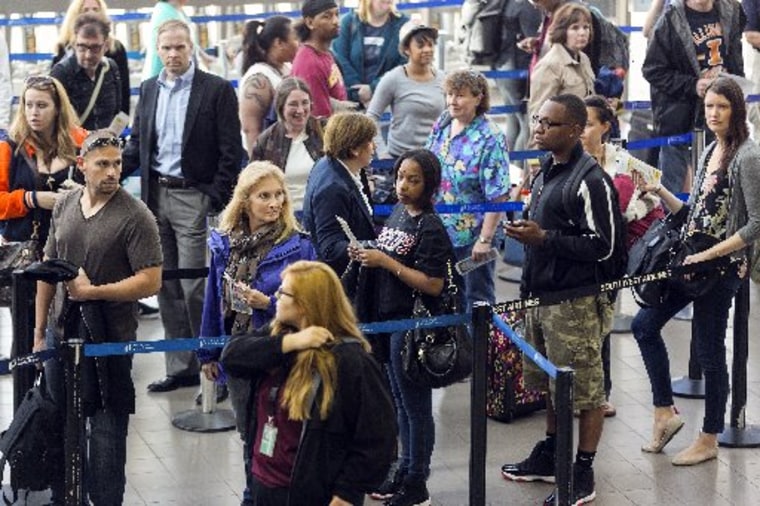Two months after the sequester forced across-the-board cuts in government spending, a supermajority of Americans say they have not felt the consequences, according to a new CBS News/New York Times poll.
Out of the 965 adults surveyed nationwide, 69% told pollsters that they had not been "personally affected" by the sequester. Only 8% said they had been affected a "great deal," while 19% said they had been "somewhat" affected.
It will be a while longer before we understand the full effects of the sequester, but one thing is certain: If most Americans don't think it affects them, then it will be more difficult for progressives to undo the cuts. Washington progressives have failed to create a sense of urgency around their attempts to undo sequestration.
The Obama administration and liberal opponents of spending cuts exaggerated the immediacy of sequester-induced pain, writes independent journalist David Dayen, because "making clear the impact of forced austerity may offer the best hope for discrediting and reversing it." However, the slowly unfolding nature of the government's diminished capacity is working against them, allowing Americans to believe sequestration isn't so bad after all.
In fact, the outcome of the cuts has already been devastating for many people, though most of them reside at the bottom of the income ladder. Cuts to housing aid have thrown families across the country out on the street, a process which Housing and Urban Development secretary Shaun Donovan predicted could ultimately result in “more than 100,000 homeless and formerly homeless people, the majority of whom are families, disabled adults or veterans, being removed from their current house or emergency sheltered programs, putting them at substantial risk of returning to the streets."
Similarly, cuts to education funding disproportionately affect school districts which are already underfunded. The National Education Association predicts that 50,000 more educators could be laid off as a result of sequestration. Some social welfare programs, such as unemployment benefits in Pennsylvania, are also on the chopping block.
While most Americans don't believe they personally have suffered the consequences of sequestration, 46% of those surveyed did think that the sequester is bad for the economy overall. Only 10% believed that the sequester would be good for the economy, while 35% predicted that it would have no meaningful impact. Among people making over $100,000 per year, only 39% believed sequestration would damage the economy, and a full 45% predicted that it would have no effect.
